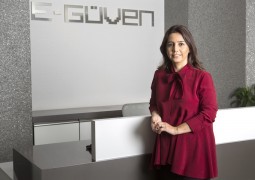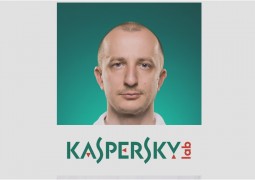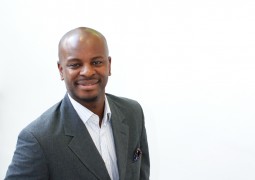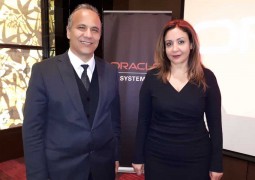Data Capital And Datavist – Paul Sonderegger / Oracle – Part 2/2
by 0

>>> This is the second part (2/2) of our interview with Paul Sonderegger <<<
>>> You can read the first part (1/2) of our interview with Paul Sonderegger click here <<<
 What will happen to humans?
What will happen to humans?
All of this is in service to human objectives and goals. There is a real need for imagination for innovation, for invention, a real need for the complementarity between people and machines.
In one of the examples that come up a lot in this idea is chess. On the way that, chess competition has changed. We know back in the 90s that machine finally beat Gary Kasparov and but today there are so-called freestyle chess competitions where you have teams of people and machines playing against another team of people and machines and those teams, the people and machine teams they beat the machine only team more than they lose. It’s an example of where the complementarity between people and machines is better than the machines themselves.
And after we expect to see in clinical diagnosis for example in healthcare, and it’s what we expect to see in even in manufacturing as we have more 3-D printing and the methods of manufacturing change. That opens the door for entirely new kind of design, but then it also opens the door for entirely new kind of any manufacturing that Smaller scale can then be done in much more at smaller facilities. So there’s a big place for people in the future. There’s no future without people.
Is there any company name you can tell us which company or which sector benefits from big data analytics?
Big benefits from really big data include banking and insurance indeed.
In banking, there’s an enormous amount of data available about what products do people use and in what regions ample data for understanding customers better, their financial needs.
In insurance, there are a lot of really interesting things happening because of new sources of data from the internet affects. The insurers, of course, are offering insurance against catastrophe is another forms of risk in the real world and so basement getting flooded because the water heater breaks or against car accidents for example.
The ability to capture data from sensors and household equipment changes the pricing of risk for homeowner policies. The ability to capture data with driving behavior changes the pricing risk for auto insurance policies.
But we know the places where big data becomes potentially really valuable is in places like healthcare and education where we’re talking about expanding access to healthcare especially in improving the quality of life and length of life while still reducing the cost to deliver those better services.
I think that there is another perspective there. Because when the technology is improving, we are using this such as the insurance company will begin to require their big data and analyze it, and change the insurance policy. Then it will make single humans take themselves better. The insurance company will come to me and say that ‘you are smoking, you do not make a goal of ten thousand steps a day, I will increase your insurance right’. So there will be such side effects also. What is your opinion?
That is a huge area of discussion. It is not clear how it’s going to turn out.
As you may remember, years ago there were issues around lending and where banks would lend only to people that thought were good risks and in which is part of the business of the bank. However any event turned into discriminatory lending where there were particular groups of people from a particular area or part of a particular ethnicity couldn’t get loans easily and so new regulations came in to stop that practice.
In banks and insurers would be wise to remember those lessons and to look at the way the things like lending things like pricing of risk may have unintended consequences to figure out ways to mitigate that perhaps by changing the composition of pools.
So, with more sophisticated use of data it may be possible for insurers into making sure that coverage is available even for people who are at a higher risk of they had before for as long as they’re able to manage appropriately combined that group with groups who have a lower risk profile.
So, we don’t know how this is going to play out yet, but there’s certainly are lessons from the past that should be remembered now.
Looking at the new generation, for example, the z generation, what kind of works they will have? How do you see their future? It’s exponentially changing, and we are at the beginning of this shift. They do not want to be at the office.
Who wants to be in the office. We are not in the office now. ‘Smiley faces’
I think that with the digitization of social activity is just the latest version of the rising generation having a new way of interacting with each other.
In many years ago, Socrates got very upset that everyone was starting to write things down and not memorizing. He was very upset about the bad effect that writing would have on the youth. And a young people would have the impression of knowledge but not substance because they’re just looking things up in books. So, this fear about technology changing the way that young people are coming up with an old fear.
There are real issues now about where the public’s fear ends and the private sphere begins. Those fears boundary also something is that moved back and forth over generations.
I think one of the things that we may see is that the digital self is one that is so carefully managed and invented that the analog himself the real world interactions actually become more valuable because they’re more scarce to take time. And, we may see in a few years almost a reversal of the trends we see now where digital interactions are expanding. We find that analog interactions become much more valuable because they’re much more precious.
 What about the privacy or security of these data? How could we protect those data or person privacy?
What about the privacy or security of these data? How could we protect those data or person privacy?
That is something also the boundary discussing redefine what is public, what is private.
All of the data that Oracle holds for customers, for example, can be kept completely secure. And, such that our customers they hold the keys for themselves, and this is what we would like to see happen is. Oracle’s customers are empowered to keep the data that they create and manage totally secure all the time so that they can guarantee the privacy of their customers. It is why we are building security into silicon and our spark chips, and this is why we work so closely with Intel and making sure that Oracle technologies take advantage of the security in silicon features of Intel x86 chips.
The direction we are moving in is to keep the data encrypted all the time. That is encrypted on the disc. So, if someone smashes into the data center and manages to get to your machines and pulls out the discs they can’t do anything with the data because of encryption on the wire. The trick with doing that is that you have to keep it encrypted all the way until the moment where the processor does something with it, and it means a lot more processing power. But this is why we put security into the silicon itself so that all this encrypting and decrypting can have a very minimal impact on the processing of the data.
We want our customers to have complete control over their data and that allows them to comply with government regulation but also to keep that data secure and protected in normal operations.
How can we trust that artificial intelligence algorithms do a proper job?
What we expect to see is more algorithms will produce data about themselves about what they’re doing. So, algorithms can be made to produce records about transformations they did, the calculations they did where the data came from so-called data provenance.
They will tell their stories.
They will as a matter of fact. We are starting to, for example, Oracle data cloud provide verified demographics. We are already responding to this needs to know that the data is good by having certain sets of data that we’ve validated and certified the accuracy of that data. You will see more of like that.
What kind of solutions that you offer to your customers?
We’re focusing on building the platform underneath that allows our customers to innovate then on top. The reason being that we believe the data is a kind of capital. And, that is a source of a unique competitive bench. So, we are helping insurers, payers, healthcare providers with an environment that allows them to apply their unique knowledge about how to treat particular kinds of cancers, specific kinds of chronic illnesses without rhythms that they develop themselves.
It is not just the database. What we’re building is a big data management platform.
The platform is really for developers at insurers, healthcare providers to innovate on.
Would like to add something?
The thing that I would really emphasize if there is only one thing that we take from this conversation, it should be that data is a kind of capital on par with financial capital for creating new digital products and services. The reason that’s so important is because companies have to get the idea the data is not just a record of what happened. It is a raw material for creating new digital products and services and has huge implications both for competitive strategy and for the future of enterprise computing.
Is there any monetization tools for that kind of data?
Today, there are certain kinds of data they get sold. For example, Oracle’s data cloud is one of the largest third-party data marketplaces anywhere for consumer purchasing behavior data. But our customers need a new way to put a value on their data. There is a new way to put a dollar figure on financial value created by data and hopefully, in a little while, we’ll be able to tell you more about how to do it.
Thank you very much.
I thank you.
>>> This is the end of second part (2/2) of our interview with Paul Sonderegger <<<
>>> You can read the first part (1/2) of our interview with Paul Sonderegger click here <<<
May we invite you to watch the video interview, we have accomplished after the meeting with Big Data Strategist Paul Sonderegger from Oracle.





